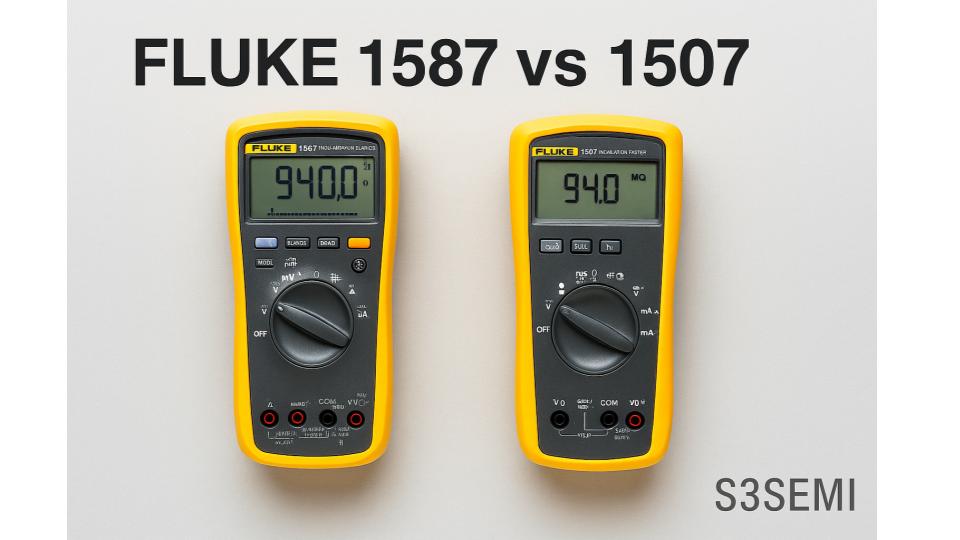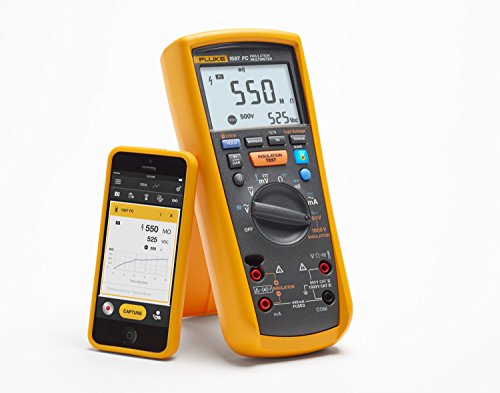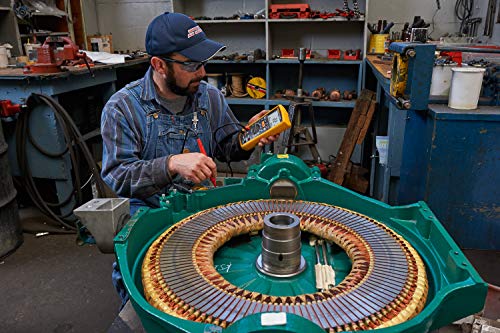Fluke is one of the most trusted names in electrical testing equipment, and when it comes to insulation testers, the Fluke 1587 and Fluke 1507 are two of the most popular choices.
🏷️ Fluke Insulation Tester Deals ⭐⭐⭐⭐
While they look similar and share some core functions, these models are designed for slightly different needs. Let’s explore their features, differences, and which one might be the best fit for your work.
📋 Overview of the Fluke 1507
The Fluke 1507 Insulation Tester is a dedicated, straightforward insulation resistance tester. It’s rugged, reliable, and optimized for electricians who need a tool to quickly and accurately test insulation on wiring, motors, and other electrical equipment.
Key Features:
- Test voltages: 50 V, 100 V, 250 V, 500 V, and 1000 V.
- Insulation resistance up to 10 GΩ.
- Automatic calculation of polarization index (PI) and dielectric absorption ratio (DAR).
- Remote test probe for easier operation.
- Compact, lightweight design.
Best For: Electricians who primarily need insulation testing without requiring advanced multimeter features.
⚡ Overview of the Fluke 1587
The Fluke 1587 Insulation Multimeter is a 2-in-1 tool, combining a full-featured digital multimeter (DMM) with an insulation tester. It takes everything the 1507 offers and adds more versatility.
Key Features:
- All insulation test features of the 1507.
- Full DMM functions: measures voltage, current, resistance, continuity, frequency, and capacitance.
- True-RMS accuracy for AC measurements.
- PI and DAR testing included.
- Backlit display for better visibility.
Best For: Professionals who want a single tool that covers both insulation resistance testing and full multimeter functionality.
⚖️ Fluke 1587 vs 1507: Side-by-Side
| Feature | Fluke 1507 | Fluke 1587 |
|---|---|---|
| Insulation Test Voltage Range | 50 V – 1000 V | 50 V – 1000 V |
| Max Insulation Resistance | 10 GΩ | 2 GΩ |
| PI/DAR Testing | ✅ Yes | ✅ Yes |
| Multimeter Functions | ❌ No | ✅ Full DMM functions |
| True-RMS | ❌ No | ✅ Yes |
| Display | Standard | Backlit |
| 💳 Pricing | 💲Check Price | 💲Check Price |
| Remote Probe | ✅ Yes | ✅ Yes |
| Best For | Dedicated insulation testing | All-in-one insulation + multimeter tool |
✅ Pros and Cons
Fluke 1507
✔ High insulation resistance range (up to 10 GΩ)
✔ Lightweight and easy to use
✔ PI and DAR testing built-in
✔ More affordable
✘ No multimeter functions
✘ No backlit display
Fluke 1587
✔ Combines insulation testing + full multimeter in one tool
✔ True-RMS accuracy for AC loads
✔ Backlit display
✔ Great for troubleshooting beyond insulation testing
✘ More expensive
✘ Lower insulation resistance range (2 GΩ vs 10 GΩ in 1507)
📝 Which One Should You Choose?
- Choose the Fluke 1507 if you need a dedicated, high-range insulation tester for professional use and don’t need built-in multimeter functions.
- Choose the Fluke 1587 if you want an all-in-one tool that can handle both insulation testing and standard electrical measurements, saving space in your tool bag.
In short, the Fluke 1507 is the specialist for insulation resistance testing, while the Fluke 1587 is the versatile multitool for professionals who want more functionality in one device.





